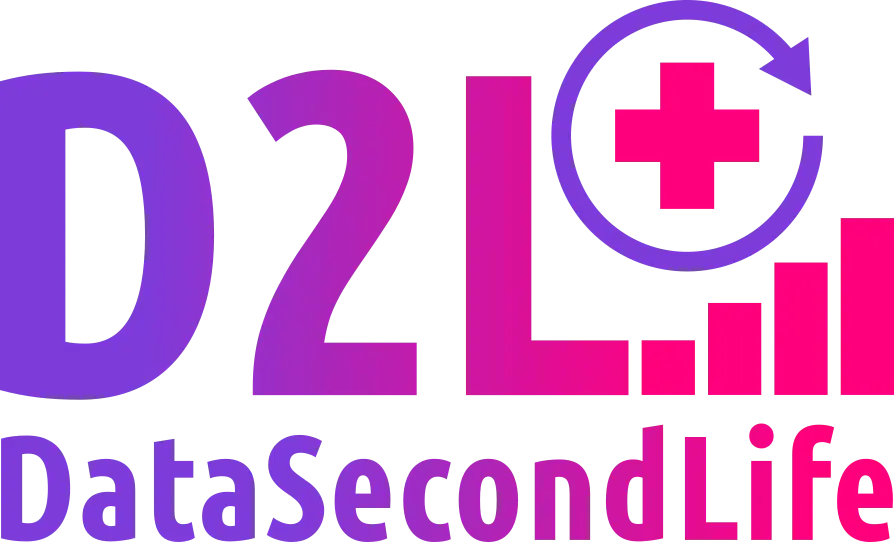Health Informatics
Hospitals and health agencies improve data interoperability, care quality, and research participationwith DNAlytics' expertise, leveraging standards like FHIR and OMOP for compatibility, innovation, and financial benefits.
Hospitals and Health Agencies must address upcoming regulations (AI Act, EU Health Data Space,...), rationalize their organization, increase their revenues while keeping quality of care at the core of their strategy.
When they also want to be at the forefront of data-driven and AI innovation, they can tap into the Health informatics capability of DNAlytics: a service offering that will make their data more interoperable, more portable, allowing a powerful and agile reflection on quality of care and policies. It also favors taking part in much more clinical research programs, with scientific and financial benefits.
Unlike generalist IT or AI providers, our service benefits from our deep understanding of your work and the healthcare environment, as demonstrated by our track record and our many scientific publications. Furthermore, we rely on standards such as FHIR and OMOP for an improved compatibility on a global scale, also benefiting from the vibrant open-source ecosystems that goes with them.
Reference Technology
Interoperable standards
When it comes to health informatics, we can rely on interoperable standards:
- OMOP: The Observational Medical Outcomes Partnership (OMOP) Common Data Model
(CDM) is an open community data standard, led by the global non-profit organization OHDSI, designed to standardize the
structure and content of observational data and to enable efficient
analyses that can produce reliable evidence. Thanks to the concepts, methodology and tools of OMOP, we are able to make medical practice data interoperable between institutions, and generate a strong increase in clinical research activity (gains are scientific and financial).
- FHIR: Fast Health Interoperability Resources or FHIR (pronounced "fire") is a widely used health information exchange standard. It is the standard chosen by many countries, including Belgium, for the official exchange of medical records in the daily practice. You can rely on us to build transformers and connectors from your own patients files and FHIR resources.


Generative AI
When relevant and compatible with validation expectations, we can implement modern AI tools, such as Retrieval Augmented Generators (RAG) or AI Agents, for example, allowing you to interact in natural language with tons of text resources. We tap into leading technologies (RAGFlow, Ollama, GPUs, ...) and models (Gemma, Llama, Mistral, ...), in order to digest or generate non-structured data (texts), pdfs, images, code, and much more.
Medical software development
When practical tools and implementation are required, we can provide software development competences that are in line with medical practice. As the case may be, we can follow standards such as IEC62304, 21CFRPart11, perform Data Privacy Impact Assessments (DPIA), among others. By doing so, the software we develop for you may be validated as Software as a Medical Device (SaaMD) developments for example. We develop in R, Python, HTML, CSS, Javascript and other frameworks.
More exploratory prototyping can also be achieved in a very agile manner, through R Shiny developments.
Partnership
We are in good company.

Data Second Life
In collaboration with our partner Solstisse, we provide a complete set of expertise for your health data interoperability challenges. This joint venture offers senior management, used to navigate complex health organization landscape, medical, technical and scientific support, allowing you to cover all the chain of activities, from IT hardware setup to scientific publications.
To boost your activity and your compliance, contact us.
Pushing data-driven innovation boundaries
We continue to innovate in data sciences applied to the healthcare industry. Our colleagues contribute to push the boundaries of scientific knowledge by publishing advances in data sciences and their innovative application to biotechnologies. Often hand in hand with our customers and partners.
Region-wide health data reuse
Institute of Analytics for Health. M. Borshchivska et al.
European OHDSI Symposium 2024, Rotterdam.
No-code multi-silos exploitation
IODA, an ATLAS-based software for the INAH Community. A. Kanfoudet al.
European OHDSI Symposium 2024, Rotterdam.
Hospital data interoperability
Structured and unstructured data from first and second line care combined in OMOP data warehouses. T. Helleputte et al., European OHDSI Symposium 2024, Rotterdam.
Data and ethics in clinical biology
Data science, artificial intelligence, and machine learning: Opportunities for laboratory medicine and the value of positive regulation. D. Gruson et al. –
Clinical Biochemistry, 2019